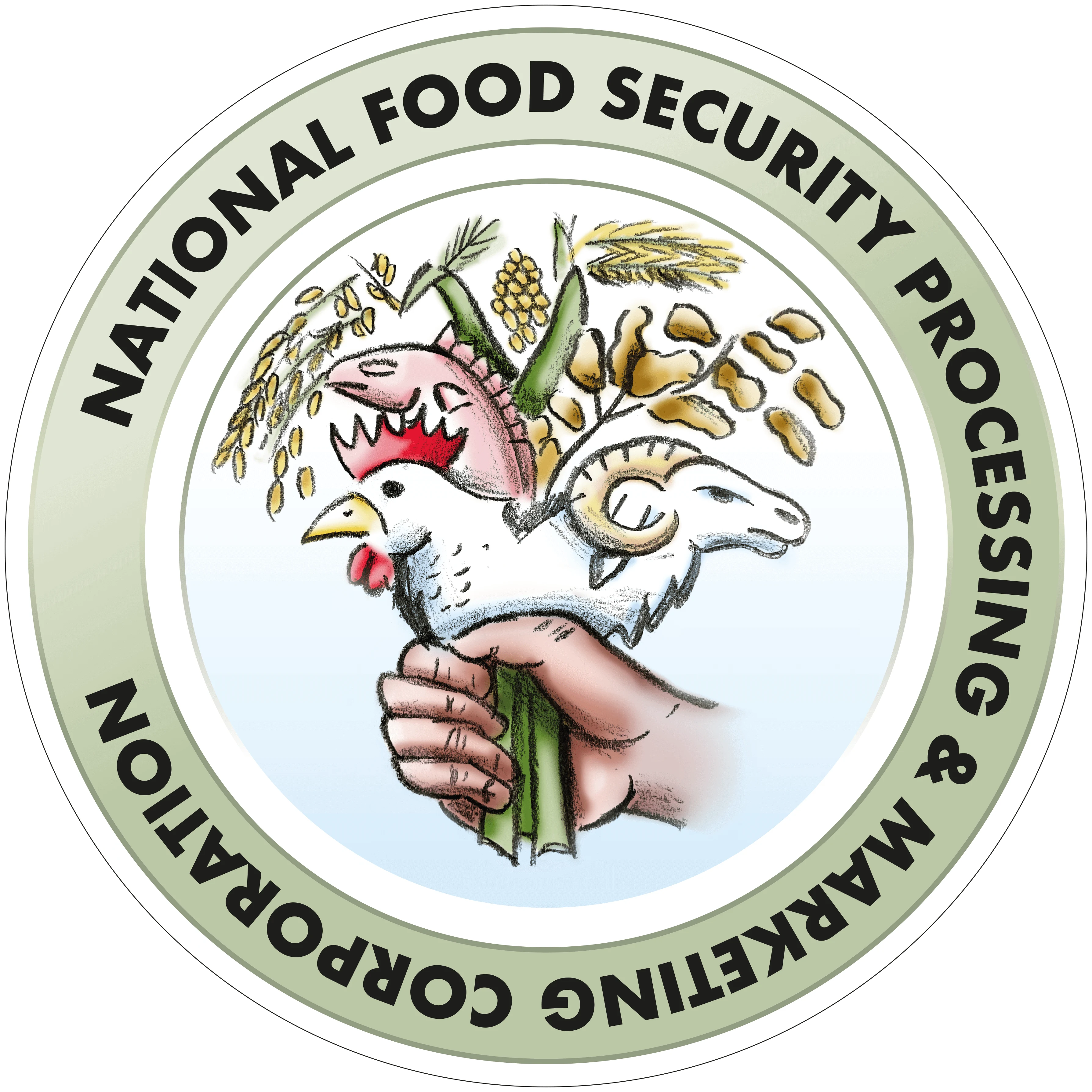Agribusiness in The Gambia is a vital sector that contributes significantly to the country's economy, employment, and food security. The NFSPMC is at the forefront of transforming this sector by ensuring that farmers, processors, and marketers have the necessary support to enhance production and value addition.
As the key institution responsible for enhancing food security, the NFSPMC focuses on processing, marketing, export and promoting sustainable agricultural practices to boost productivity and economic growth.
KEY ROLES OF NFSPMC IN AGRIBUSINESS:
1. Enhancing Food Security:
· Supporting local farmers in rice, groundnut, and other staple food production.
· Ensuring sufficient food supply through efficient processing and distribution.
2. Processing Agricultural Produce:
· Investing in modern processing facilities to add value to raw agricultural products.
· Reducing post-harvest losses through improved storage and preservation techniques.
3. Market Development & Trade Promotion:
· Connecting farmers and agribusinesses to both local and international markets.
· Promoting fair pricing mechanisms for agricultural products.
4. Support for Farmers & Agribusinesses:
· Providing access to inputs such as fertilizers, improved seeds, and farming equipment.
· Facilitating training programs to enhance productivity and sustainable farming practices.
5. Public-Private Partnerships & Investment Promotion:
· Encouraging investments in agribusiness through partnerships with stakeholders.
· Enhancing infrastructure to support agricultural production and exports.
Challenges Facing NFSPMC in Agribusiness Development
Despite its significant role in supporting agriculture and food security, the NFSPMC faces several challenges that hinder its full potential in transforming agribusiness in The Gambia:
1. Limited Infrastructure
· Many rural farming communities still lack proper roads, storage facilities, and irrigation systems.
· Poor road conditions affect the timely transportation of goods, increasing post-harvest losses.
2. Inadequate Financing
· Limited financial resources restrict the corporation’s ability to expand operations, upgrade processing facilities, and support smallholder farmers at scale.
· Access to affordable credit remains a major barrier for farmers and agribusiness entrepreneurs.
3. Climate Change & Environmental Issues
· Unpredictable weather patterns, flooding, and droughts pose serious risks to agricultural productivity.
· Soil degradation and deforestation also threaten long-term food production.
4. Limited Use of Technology
· Low adoption of modern farming techniques, digital tools, and mechanization reduces productivity.
· A lack of data and real-time market information limits efficient decision-making for both producers and traders.
Future Prospects for NFSPMC and Agribusiness in The Gambia
Looking forward, the NFSPMC has strong potential to transform The Gambia’s agricultural landscape through innovation, investment, and partnerships. Key areas of growth and opportunity include:
1. Expansion of Value Addition & Agro-Processing
· Investing in more modern processing plants for groundnuts, rice, maize, and other crops will increase export potential and reduce waste.
· Developing food packaging and branding will help Gambian products compete in regional and international markets.
2. Digital Agriculture & Market Access
· Introducing mobile platforms for market pricing, weather updates, and supply chain tracking can empower farmers and traders.
· Digitizing farmer registration, payments and subsidy systems will improve efficiency and transparency.
3. Public-Private Partnerships (PPP)
· Collaborating with private sector investors can bring in capital, technology, and expertise to scale up agribusiness operations.
· PPPs in logistics, storage, and processing can improve supply chain management and reduce costs.
4. Enhancing Local Production to Reduce Imports
· Supporting large-scale farming, promoting irrigation schemes, and improving input distribution will help boost local production of rice, millet, corn etc.
· This will gradually reduce dependency on imports and strengthen food sovereignty.
5. Youth & Women Empowerment in Agribusiness
· By targeting programs to involve youth and women in agribusiness value chains, the NFSPMC can help reduce unemployment and stimulate inclusive economic growth.
Conclusion
The NFSPMC remains a pillar of agribusiness and food security in The Gambia, balancing its role in supporting local production, regulating markets, and importing essential commodities. While challenges remain, the future holds promising prospects for expansion, innovation, and resilience especially with the right investments and policy support. The continued evolution of NFSPMC will be crucial in achieving a sustainable and food-secure Gambia





